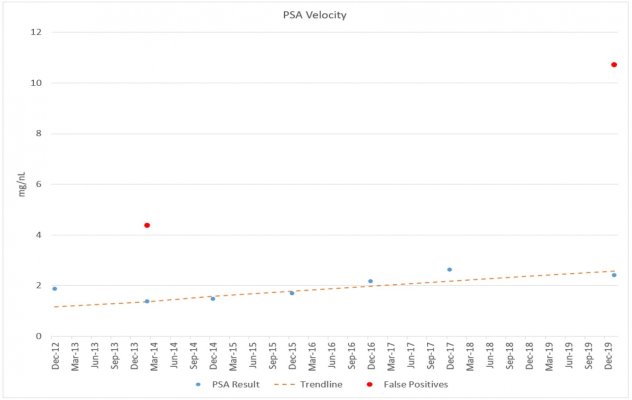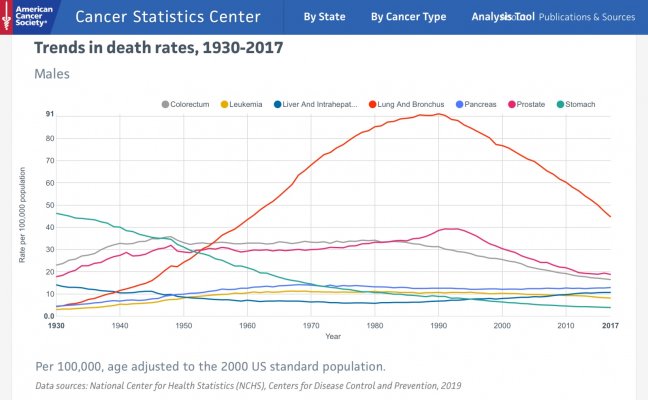I have significant mileage on this issue.
My doc is a research specialist on this and we chat prostate cancer policy during the exam.
Notwithstanding past misuses and misunderstandings of the screening tests, annual PSA blood draws are useful if you don’t overweight its significance and always retest a few months after. Been through 2 such spikes.
He is dismayed at the overcorrection with PSA screening.
I take all the PSA draws I can get and go very slow with biopsies, done two. Happily clear.
I chart my PSA velocity, how much it goes up each year.
What you are scanning for is a deviation from the trend that persists, ie does not at least partially reverse, a couple of months after a first mark of a deviation.
If it persists after retests and double checks, bump up to the fancier blood tests. As evidence mounts, move toward the best talent you can get access to.
If all the data points to risk, Biopsy was no biggie. Make it easy on yourself and ask for anxiety meds and distract yourself with a video or podcast.
Read deeply and don’t delegate key decision points.
My general observation is that in this phase of life you need to be on the watch to catch things while they are small
enough to cut out. You need to celebrate problems that arise that are treatable, not hide from them.
Everyone should read this common sense post.


